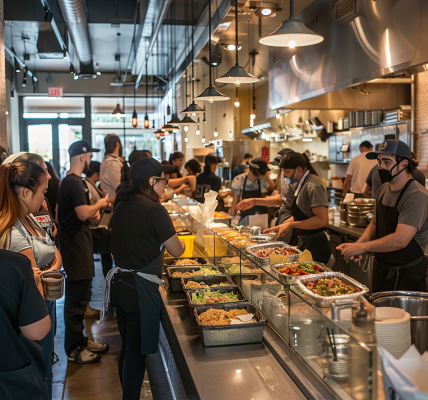Retailers like Walmart are facing challenges due to inflation, leading to a fierce competition for bargain-hunting customers. Inflation, although slightly lower than its peak in 2022, still remains high, causing concerns for both consumers and businesses. This has resulted in a delay in the Federal Reserve’s plans to reduce interest rates, further exacerbating the situation.
Brick-and-mortar retailers and restaurant chains are particularly feeling the impact of inflation on their sales. In response, many companies are resorting to drastic measures to attract customers, including lowering prices and offering discounts. Recent quarterly earnings reports have underscored the strong demand for bargains among consumers, prompting retailers to adapt swiftly to the changing market conditions.
R.J. Hottovy, Placer.ai’s head of analytical research, emphasized the current consumer trend of seeking value and affordability. This shift in consumer behavior has compelled major retailers to reevaluate their pricing strategies to cater to the needs of budget-conscious shoppers. Target CEO Brian Cornell acknowledged the challenges posed by high prices, attributing the decline in sales to consumers’ efforts to stretch their budgets amidst economic uncertainties.
To address these challenges, companies are implementing price reductions and promotional offers to retain customers and attract new ones. Despite the financial implications of absorbing cost increases, businesses are prioritizing customer satisfaction and loyalty. Target, for instance, announced plans to reduce prices on nearly 5,000 everyday items, including essential products like milk, fresh produce, and pet food, to provide relief to consumers.
The competitive landscape in the retail industry is evolving rapidly as companies strive to navigate the complexities of inflation and changing consumer preferences. By prioritizing value and affordability, retailers are adapting their strategies to meet the demands of a price-sensitive market. As the battle for bargain-hunting customers intensifies, businesses are exploring innovative approaches to stay competitive and drive growth in a challenging economic environment.





